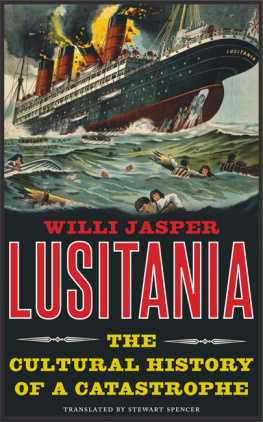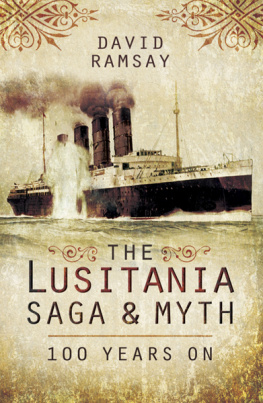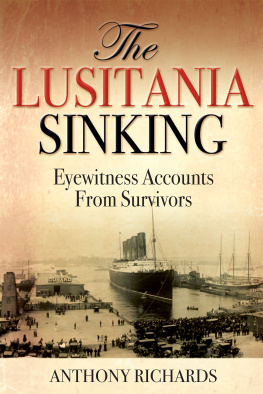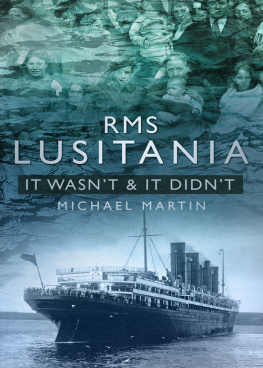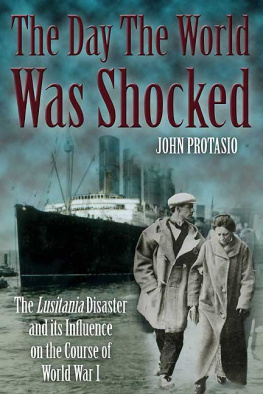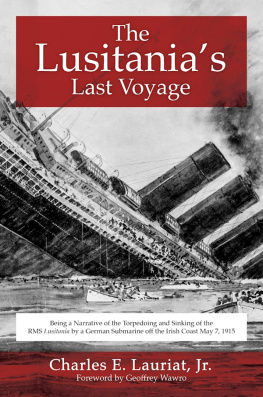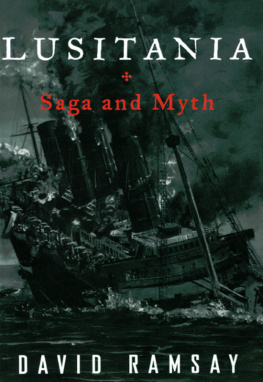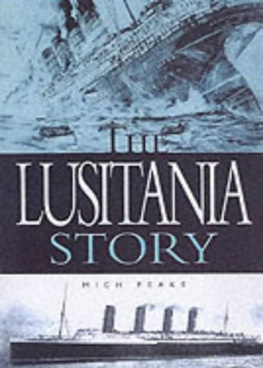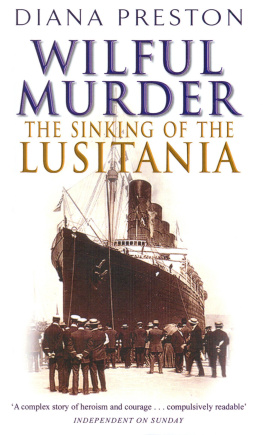

First published in English by Yale University Press in 2016
English language translation copyright 2016 Stewart Spencer
Originally published under the title Lusitania: Kulturgeschichte einer Katastrophe by Willi Jasper 2015 by be.bra verlag GmbH, Berlin
All rights reserved. This book may not be reproduced in whole or in part, in any form (beyond that copying permitted by Sections 107 and 108 of the U.S. Copyright Law and except by reviewers for the public press) without written permission from the publishers.
For information about this and other Yale University Press publications, please contact:
U.S. Office:
Europe Office:
Typeset in Adobe Caslon Pro by IDSUK (DataConnection) Ltd
Printed in Great Britain by Gomer Press, Llandysul, Ceredigion, Wales
Library of Congress Cataloging-in-Publication Data
Names: Jasper, Willi, author. | Spencer, Stewart, translator.
Title: Lusitania : the cultural history of a catastrophe / Willi Jasper ; translated by Stewart Spencer.
Other titles: Lusitania. English
Description: New Haven : Yale University Press, [2016] | Originally published: Jasper, Willi. Lusitania : Kulturgeschichte einer Katastrophe. Berlin : be.bra verlag GmbH, 2015. | Includes bibliographical references and index.
Identifiers: LCCN 2016010335 | ISBN 9780300221381 (alk. paper)
Subjects: LCSH: Lusitania (Steamship) | World War, 19141918Naval operationsSubmarine. | World War, 19141918--Moral and ethical aspects.
Classification: LCC D592.L8 J37 2016 | DDC 940.4/514dc23
LC record available at http://lccn.loc.gov/2016010335
A catalogue record for this book is available from the British Library.
10 9 8 7 6 5 4 3 2 1
Contents
Ship Owners and Admirals
The Myth of the Titanic
The risk fleet
Were sailing off to Eng-e-land
The Tragedy of the Lusitania
The Queenstown Graves
Gospel in New York
Thomas Mann did not shed a tear
Erich Mhsam: Horror raised to its highest pitch
Karl Liebknechts Leaflet
The End of the U-20
The Turning Point of the War and Myths about the War
Nonpolitical Reflections and the Germans special path
German Men of Letters
War Artists and Artists Protests
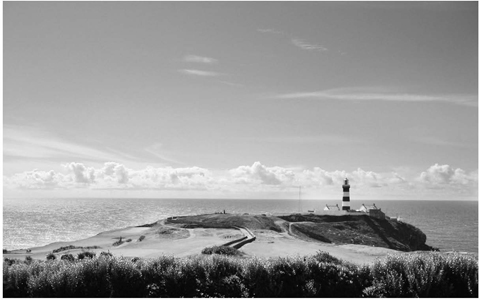
1 The Old Head of Kinsale and its prominent lighthouse.
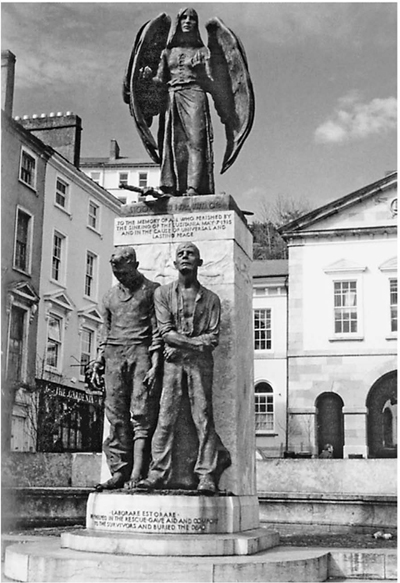
2 Memorial in Cobh recalling the victims of the Lusitania disaster.
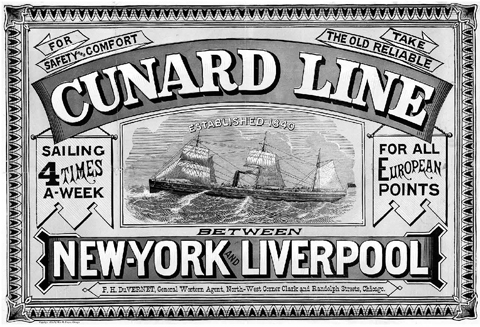
3 British shipping companies traditionally dominated the transatlantic passenger routes. Cunard Line poster from 1875.
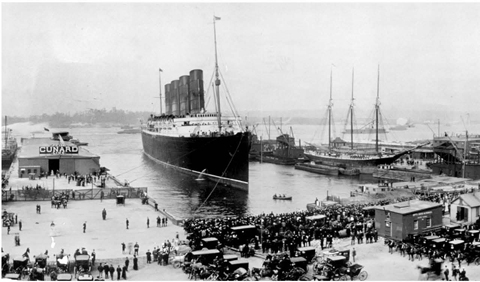
4 At the time of her maiden voyage on 7 September 1907, the Lusitania was the largest passenger liner in the world. Measuring 787 feet in length, she could accommodate 2,000 passengers and 850 crew members.
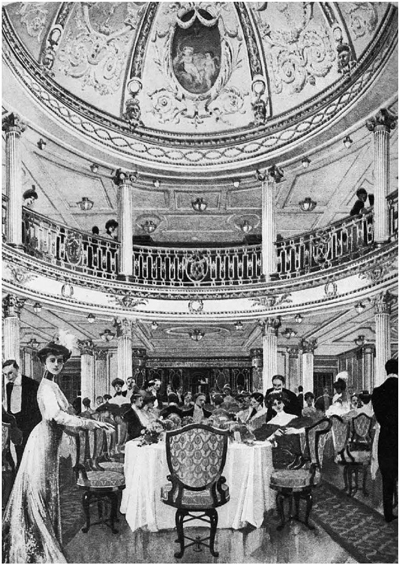
5 The interior of the Lusitania rivalled that of any luxury hotel. Contemporary illustration of the first-class dining room.
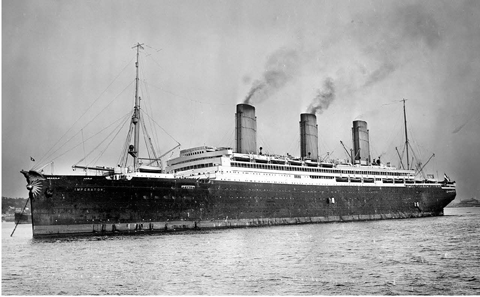
6 My field is the world. The German Imperator was not only a passenger liner designed for peacetime, but also a symbol of aggression.
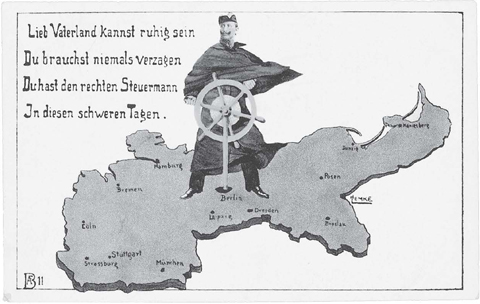
7 Kaiser Wilhelm II steering the ship of state. A postcard from the First World War. The caption reads: Dear Fatherland, you can rest at peace. / You never need despair. / You have the rightful steersman / In these difficult days.
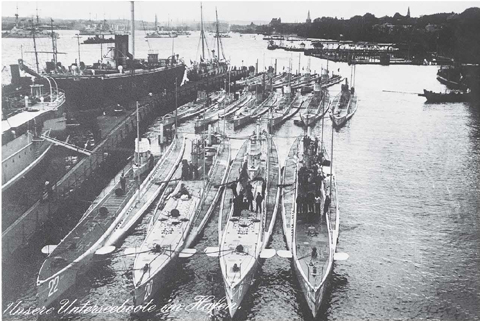
8 The new wonder weapon was intended to bring about the longed-for change in the fortunes of war: German U-boats in Kiel harbour, 1914.
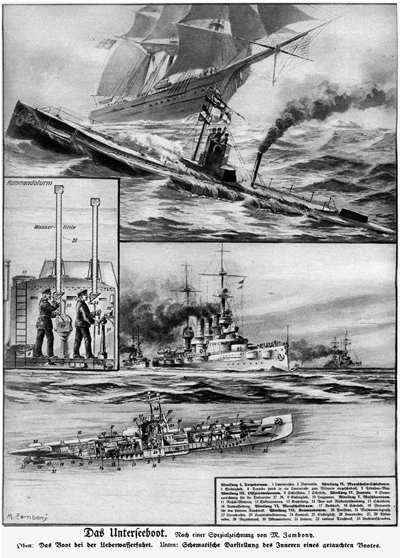
9 The Submarine: an idealized depiction of submarine warfare from the Illustrierte Kriegszeitung.
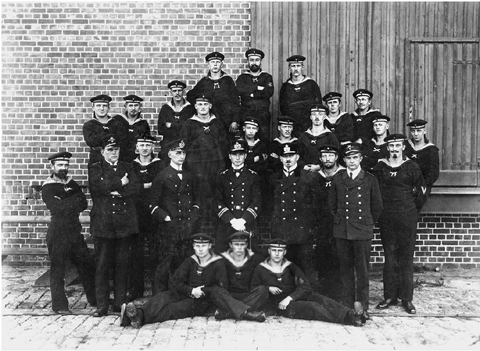
10 A band of brothers: following their successes in the autumn of 1914, the crew of the U-9 pose for a photograph in which they strike a heroic attitude.
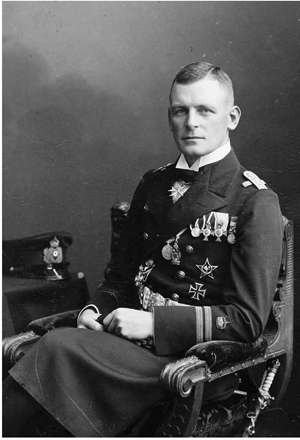
11 Max Valentiner was famous as a U-boat commander and as the author of money-spinning adventure stories. Like most of his surviving comrades, he continued his career under the National Socialists.

12 The success of the submarine war was measured in tons: a German propaganda poster from 1918 indicating that, in the first half of 1918, Germany had built new vessels weighing 270,000 tons, while simultaneously sinking enemy ships weighing 630,000 tons.
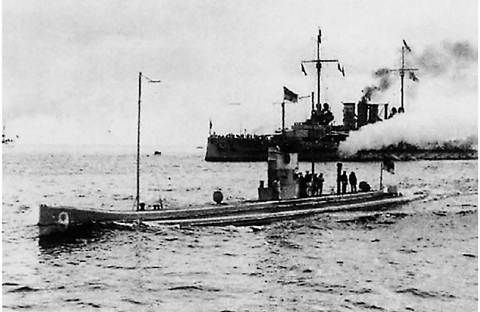
13 The U-9 under Captain Weddingen in convoy with other ships belonging to the German ocean-going fleet. Photograph from 1914.
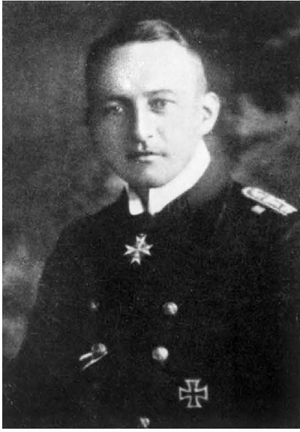
14 Captain Walther Schwieger, the commander of the U-20. Following the sinking of the Lusitania, he was awarded the order Pour le Mrite.
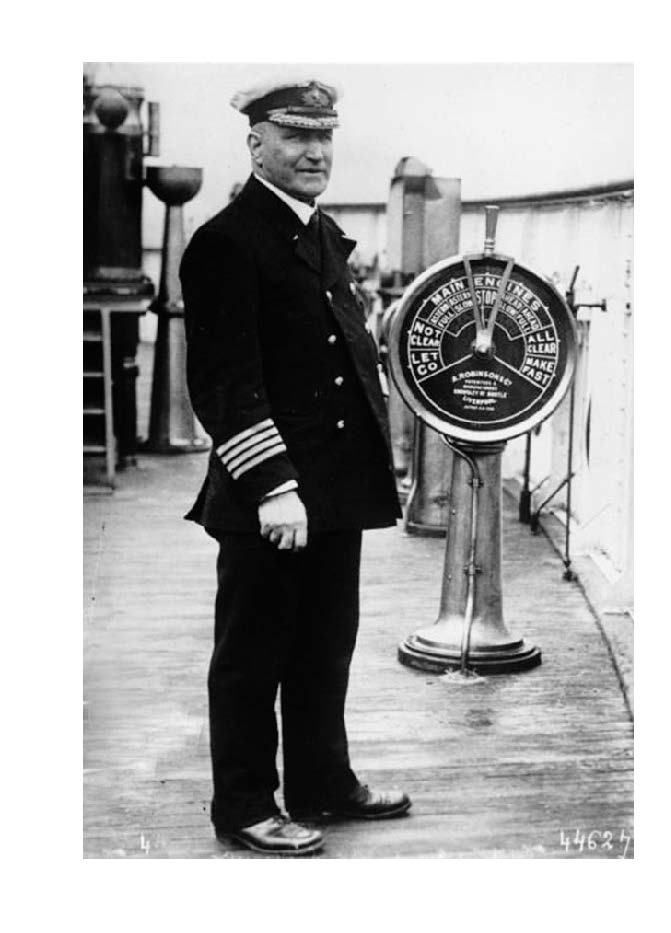
15 Captain William Turner took command of the Lusitania in March 1915, only weeks before the vessel was sunk.

16 Advertisement placed in American newspapers by the German government warning against crossing the Atlantic in British ships.
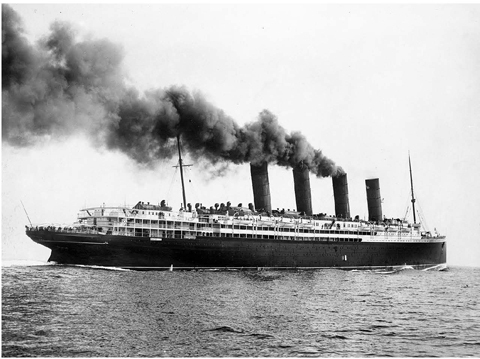
Next page
